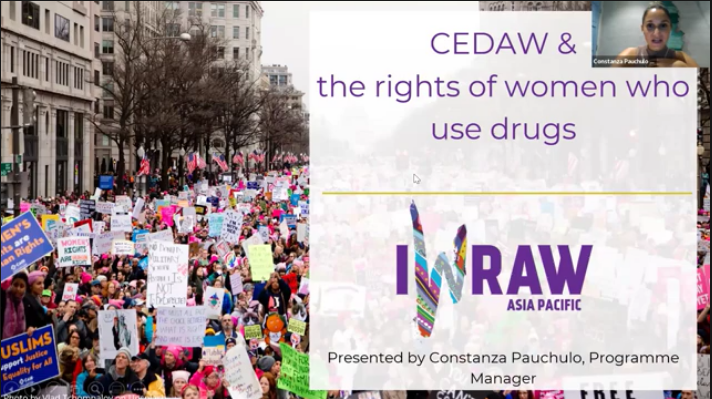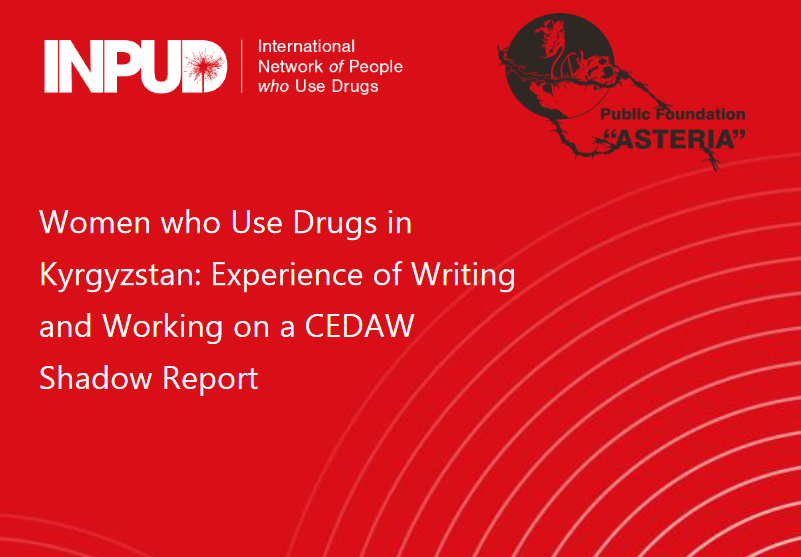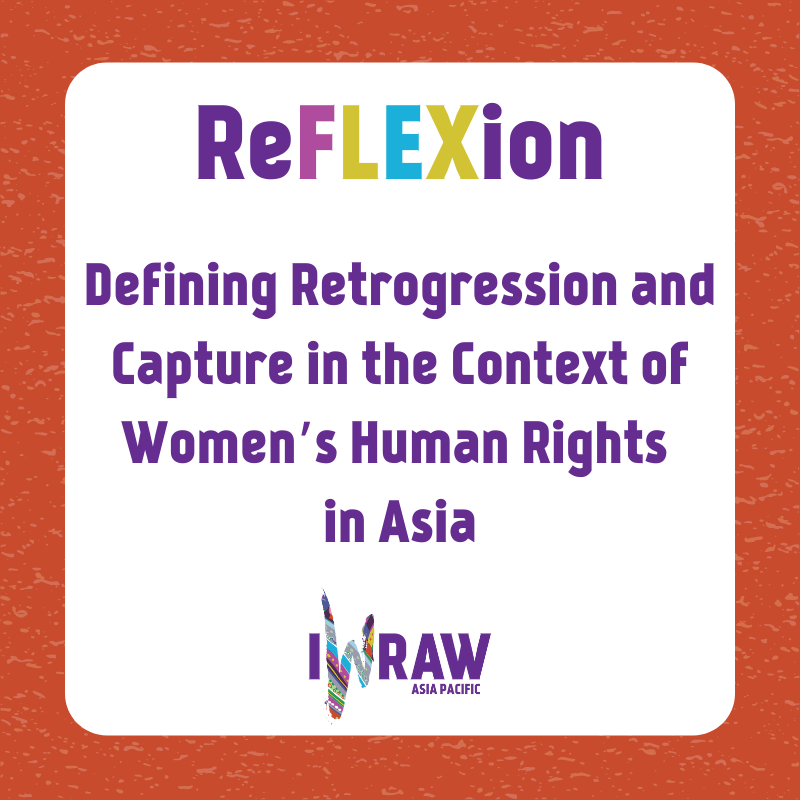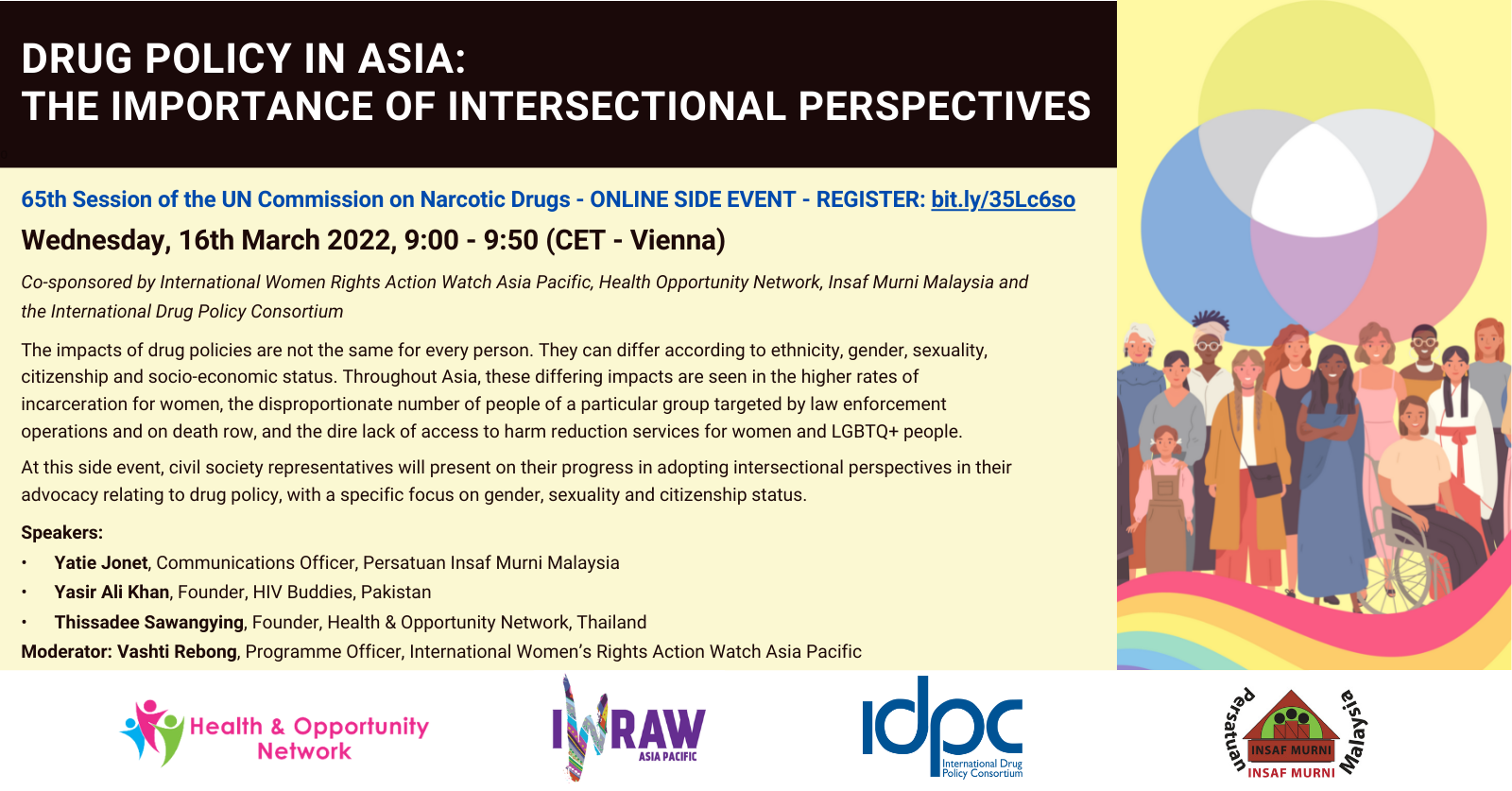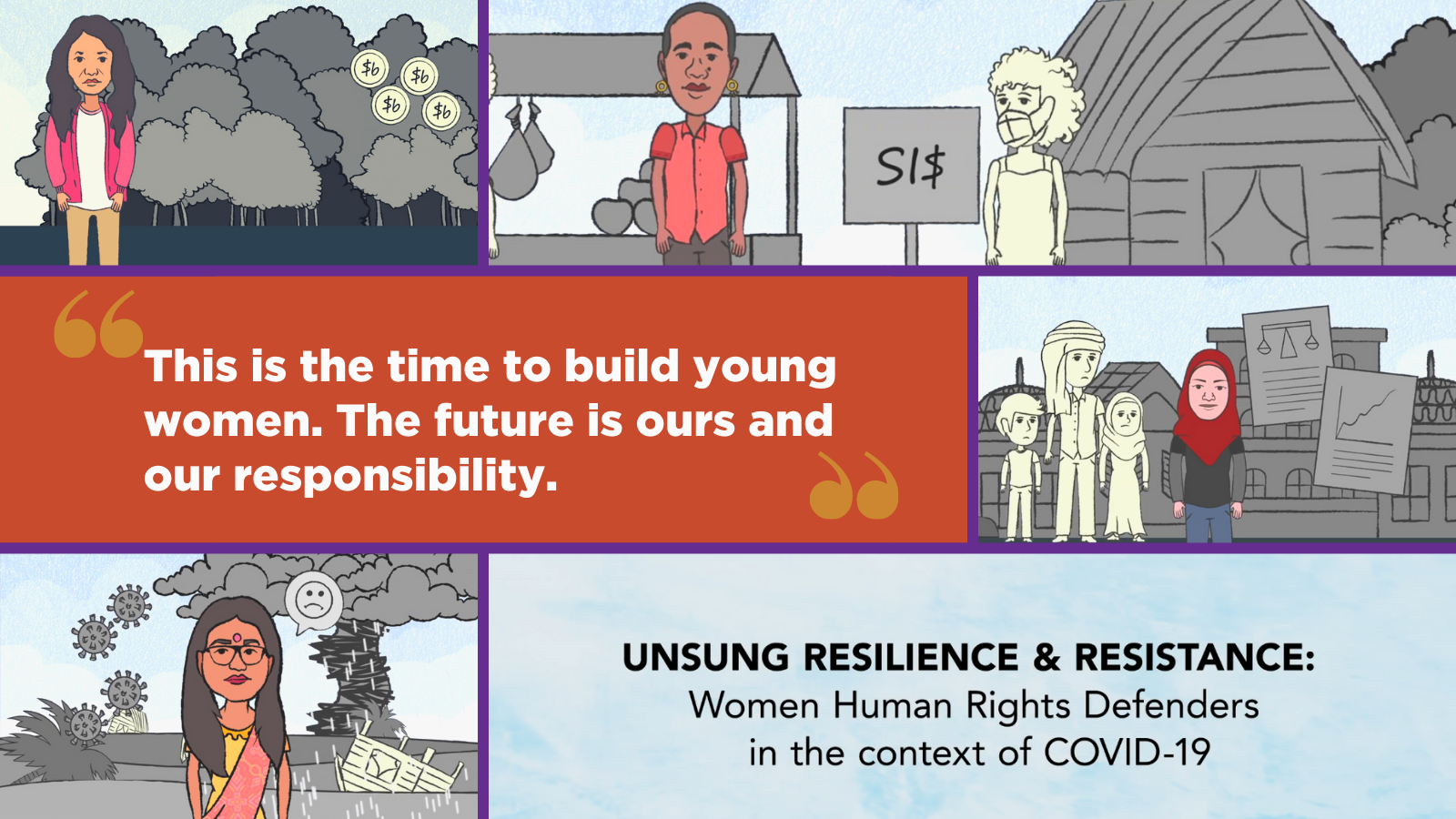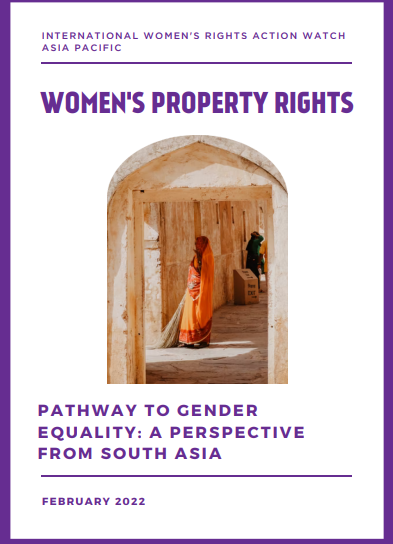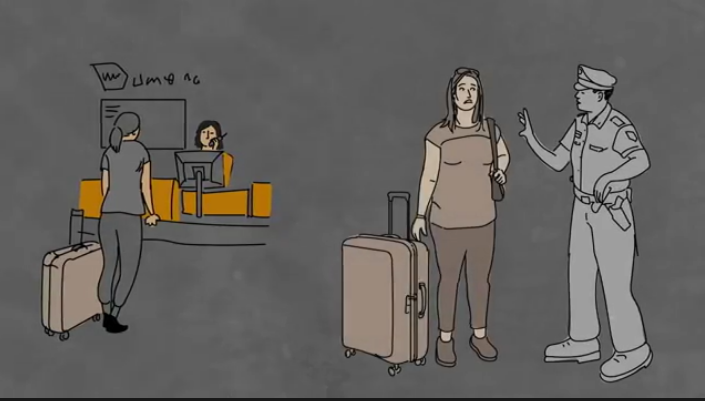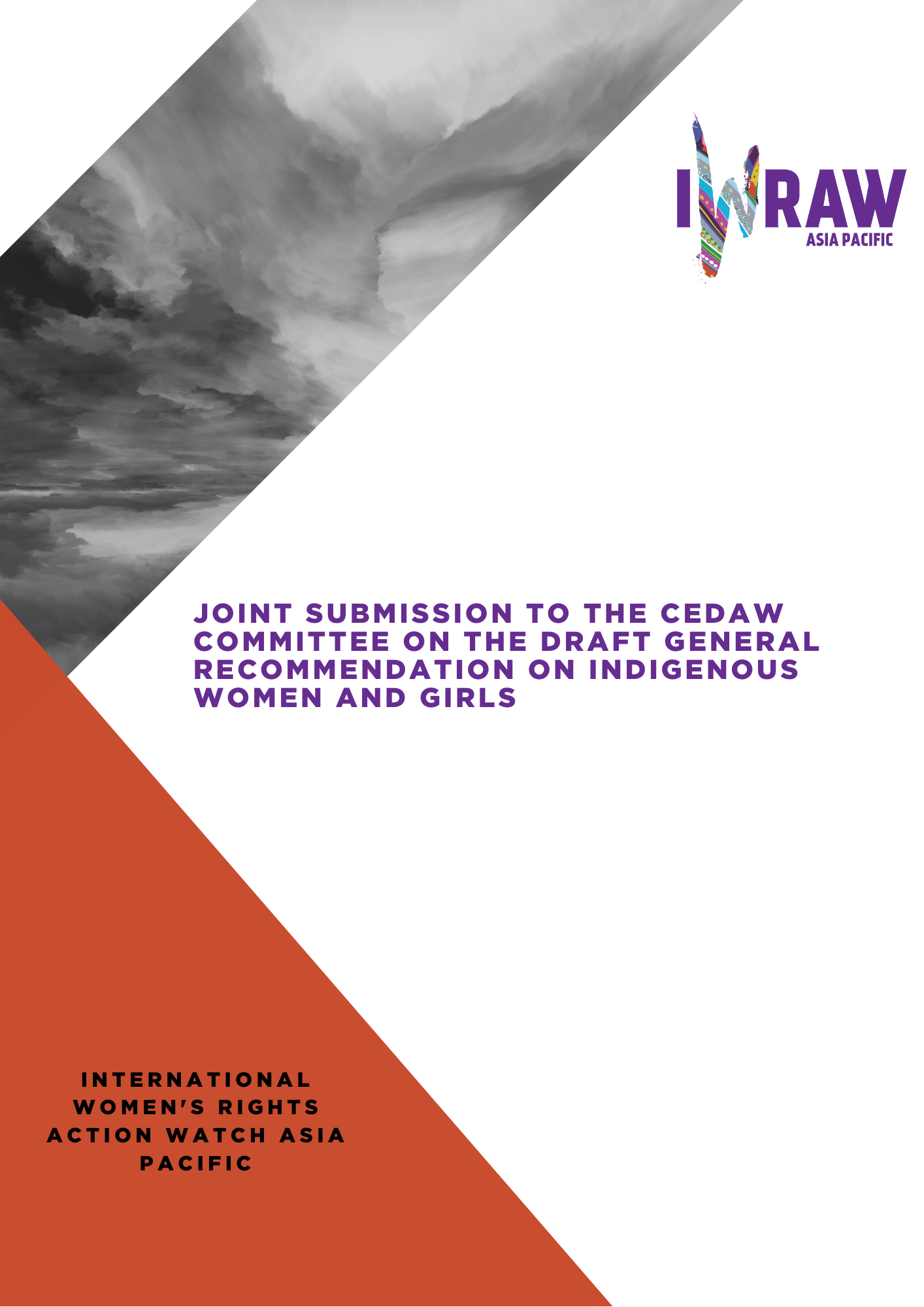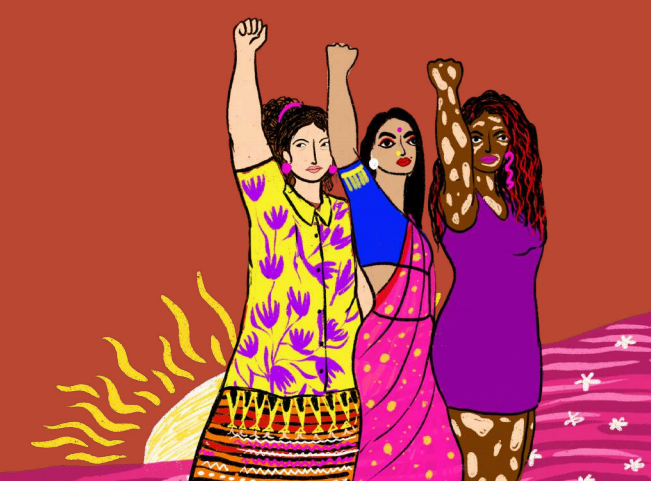Bordering Rights: The globalised double standards of visa regimes
November 2024
“It takes less than a century, it seems, to see the absence of freedom as a natural condition” – Speranta Dumitru, ‘When World Leaders Thought You Shouldn’t Need Passports or Visas’, The Conversation, 27 September 2016. In today’s interconnected world, everyone should have the freedom to travel and pursue opportunities, regardless of nationality or origin. […]
Read MoreEngaging with the Committee on the Elimination of Discrimination against Women (CEDAW)
July 2022
A webinar organised on International Drug Users Remembrance Day (21 July) 2022 by the International Network of People who Use Drugs (INPUD) to discuss how CEDAW can be utilised by drug user advocates to address human rights violations in their communities and amplify the specific impacts of drug policy on women and gender-diverse people who […]
Read MoreWomen who Use Drugs in Kyrgyzstan: Experience of Writing and Working on a CEDAW Shadow Report
June 2022
This resource by Asteria, with support from the International Network of People who Use Drugs (INPUD), describes the experience of engaging with Kyrgyzstan’s CEDAW review in 2021. It provides a case study to assist other organisations who are considering engaging with CEDAW or other human rights mechanisms. Thirteen pages, PDF.
Read MoreFeminist Learning Exchange: Defining Retrogression and Capture in the Context of Women’s Human Rights in Asia (FLEX)
April 2022
The Feminist Learning Exchange: Defining Retrogression and Capture in the Context of Women’s Human Rights in Asia (FLEX) aims to consolidate feminist knowledge and analyse the social, political, economic and legal context of women and marginalised groups organising to claim their rights; and to understand how women’s rights groups advocate for the rights of marginalised […]
Read MoreDrug policy in Asia: the importance of intersectional perspectives
March 2022
The impacts of drug policies are not the same for every person. They can differ according to ethnicity, gender, sexuality, citizenship and socioeconomic status. Throughout Asia, these differing impacts are seen in the higher rates of incarceration for women, the disproportionate number of people of a particular group targeted by law enforcement operations and on […]
Read MoreWomen Human Rights Defenders and COVID-19
March 2022
Lockdowns, restricted movement, financial instability and a global heath crisis all intersected to shape the world during the COVID-19 pandemic. Worsened by the impacts of climate change, the burden of survival fell disproportionately on women and subsequently, women human rights defenders (WHRDs) who faced navigating rights violations in an unknown world. Our ‘Women Human Rights […]
Read MorePathway to Gender Equality: A Perspective from South Asia
February 2022
This presentation was delivered by Prof. Savitri Goonesekere at the Marriage and Property Rights Pathways for Gender Equality in Africa and Asia workshop on 22 June 2021.
Read MoreSex Work is Not Trafficking
July 2021
The conflation of sex work with trafficking leaves sex workers vulnerable to abuse by authorities while discouraging people involved in the sex industry from reporting trafficking cases. Sex workers’ rights activists from South and Southeast Asia describe their experiences and perspectives in this video created in partnership with the Asia Pacific Network of Sex Workers. […]
Read MoreJoint Submission on the Draft General Recommendation on Indigenous Women and Girls
June 2021
This joint submission to the CEDAW Committee was prepared by the Network of Indigenous Women Asia (NIWA) and Asia Indigenous Peoples Pact (AIPP) in consultation with 15 organisations from East Asia, South Asia, Southeast Asia and Mekong region, including IWRAW Asia Pacific. English: PDF | Word
Read MoreForefronting Our Agendas: Advocacy to Protect Rights of Sex Workers
May 2021
In March 2021, Asia Pacific Network of Sex Workers (APNSW) network members from eight countries in South and Southeast Asia shared their reflections of engaging with the project Forefronting Our Agendas: Advocacy to Protect Sex Workers’ Rights Using CEDAW. IWRAW Asia Pacific was privileged to facilitate their engagement in CEDAW advocacy and activism over the […]
Read More


